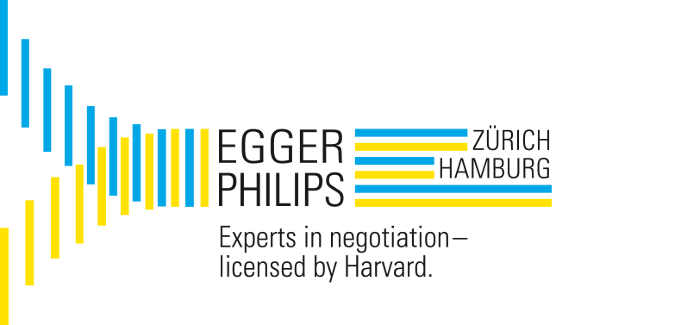The Harvard Concept
In 1981 two Harvard professors, Roger Fisher and William Ury, joined forces with Bruce Patton to consolidate the findings from years of research into ‘win-win negotiations’ resulting in their now famous book ‘Getting to Yes’ . This standard reference source for good negotiation has now been translated into over 30 languages and has sold millions of copies. It has long since proven its usefulness as a basis for successful conflict resolution in thousands of cases – from international politics, through various fields of economic life, right up into domestic disputes within families.
At Harvard University there is no single theory of negotiation. On the contrary: the myriad of issues that arise from questions of how best to deal with opposing interests, and how to conduct these opposing interests towards results that are beneficial for all concerned, has engaged researchers across all disciplines for many years, not only at Harvard. Among all these various conceptual approaches, “Harvard-Concept" has especially achieved international renown.
This approach to negotiations counsels us to conduct them in a way which
- is based on values and principles
- aims at balancing interests rather than fighting for predetermined positions
- is built upon a win-win philosophy
- does all this while drawing on empirically tested techniques and practices.
Demonstrable Success Factors of the Harvard-Concept are
- sustainability of the goals achieved
- high satisfaction levels for all participants
- increased efficiency of the negotiation process.
Over the years many consultants, trainers, advisors and academics have further explored the ramifications and techniques of this ‘Harvard-Concept’, enriching these ideas with practical experience from their own work. We fully support this development and application, of course only as long as the ‘Harvard name’ is not used as a brand for commercial purposes. Egger Philips remains the sole European provider licensed by Harvard University.
‘Getting to Yes’ has served as the foundation for a philosophy, which has countless practitioners, empowering them to deal better with all manner of conflicts of interest, especially in a world characterized by increasing connectivity and mutual dependency.
This book also forms an important foundation for our own work. This approach, enriched and developed further by our own intercultural experience and research . the basis for what we call our “Negotiation Circle “: ‘Open negotiation based on the Harvard-Concept®’

